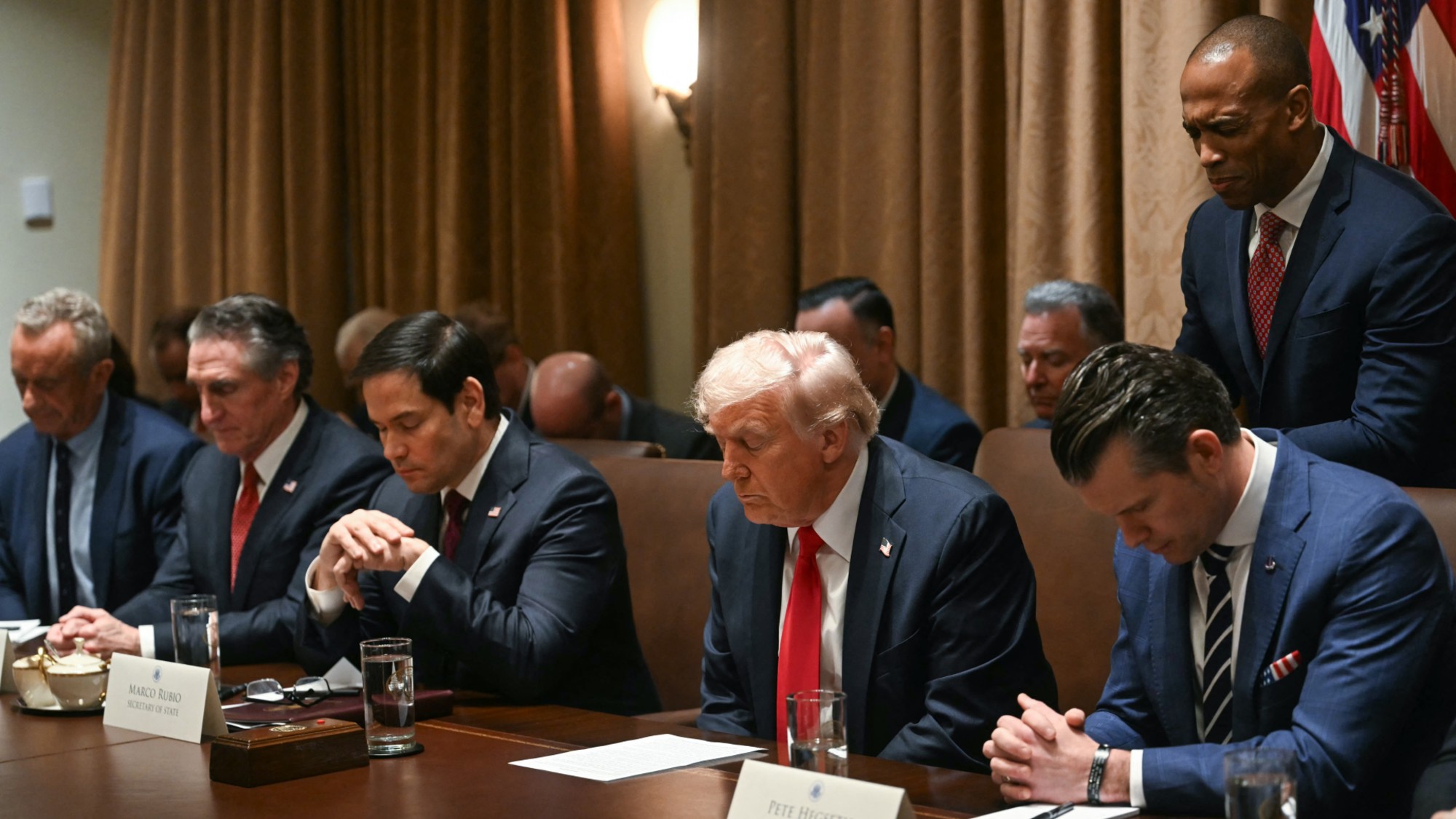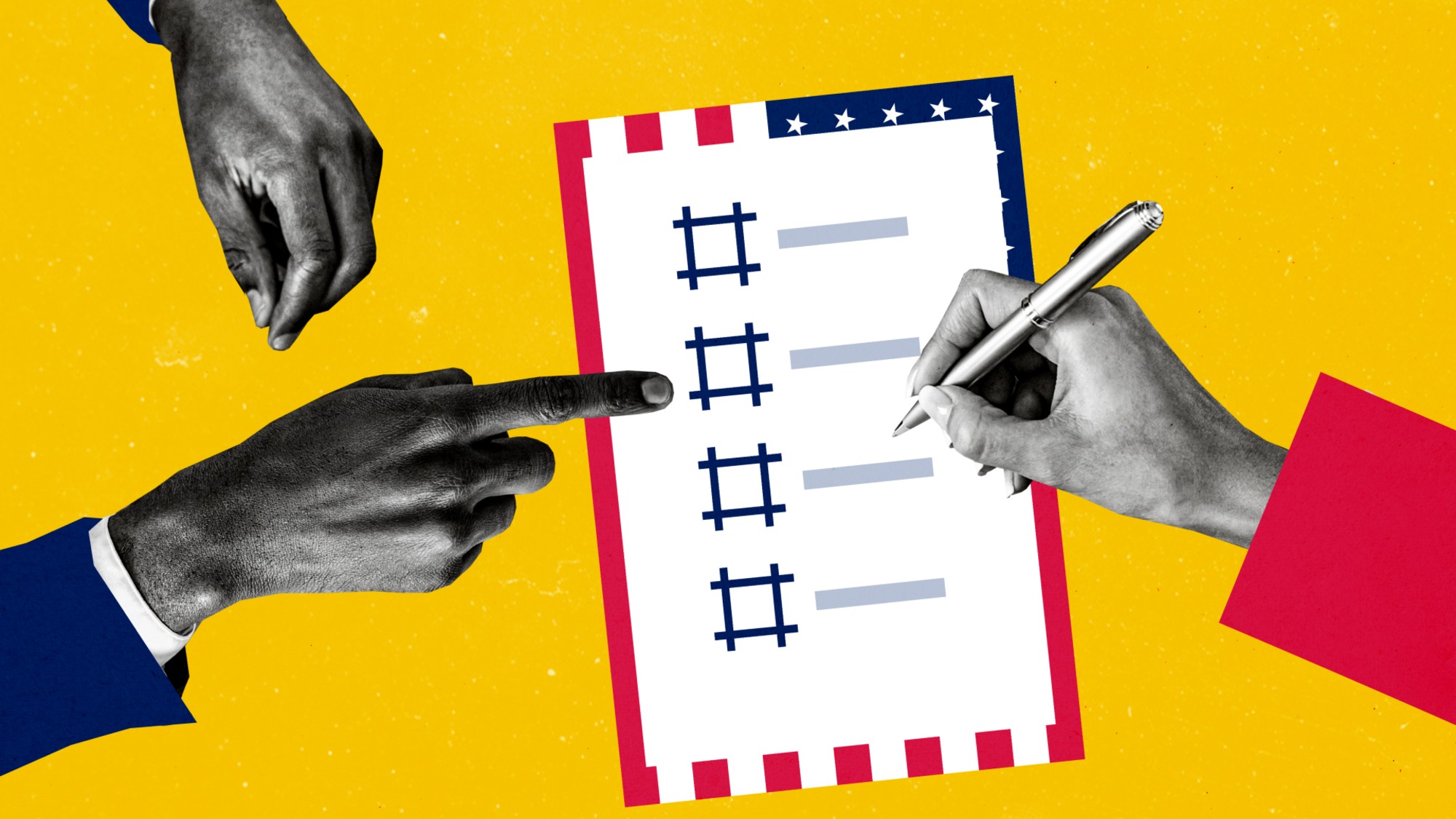New White House guidance means federal employees could be hearing more religious talk at work
Employees can now try to persuade co-workers that their religion is 'correct'


A free daily email with the biggest news stories of the day – and the best features from TheWeek.com
You are now subscribed
Your newsletter sign-up was successful
If you are a federal employee, you might notice more religious conversations at work. That's because these discussions are now sanctioned by the government. The Trump administration has announced new guidance for religious tolerance in federal workplaces, as part of what it calls an effort to stop religious persecution at job sites. The guidance dictates a series of religious actions that should be allowed without any discipline occurring, and it marks the latest attempt by the White House to increase the role of religion in daily life.
What does this new guidance allow?
The new guidance was established in a memo from the U.S. Office of Personnel Management (OPM), which runs the country's federal civil services. It provides a guideline for "protecting and enforcing each federal employee's right to engage in religious expression in the federal workplace," the memo said. Federal agencies should "allow personal religious expression by federal employees to the greatest extent possible" unless it would "impose an undue hardship on business operations."
Categories of religious expression that should be allowed include the "display and use of items used for religious purposes or religious icons," said the memo, including the display of religious items such as crosses and mezuzahs on desks. The most notable part of the memo, though, was guidance for religious talk and proselytizing at work. Federal employees "may engage in conversations regarding religious topics with fellow employees, including attempting to persuade others of the correctness of their own religious views." These employees can also "encourage others to participate in religious expressions of faith, such as prayer, to the same extent that they would be permitted to encourage co-workers to participate in other personal activities."
The Week
Escape your echo chamber. Get the facts behind the news, plus analysis from multiple perspectives.

Sign up for The Week's Free Newsletters
From our morning news briefing to a weekly Good News Newsletter, get the best of The Week delivered directly to your inbox.
From our morning news briefing to a weekly Good News Newsletter, get the best of The Week delivered directly to your inbox.
What has the response been?
While the OPM has provided religious guidance in prior presidential administrations, the Trump memo "presents a substantial shift in that it encourages employees to express their religious beliefs in the workplace," said Stefanie Camfield, the associate general counsel and director of human resource services at Engage PEO, to The Washington Post. Employers have generally been "advised to keep religious conversation to work at a minimum," as the "more religion is allowed into the workplace, the more likely it is that differences of opinion are raised."
The types of conversations around religion "have a way of turning into arguments," Camfield said to the Post. Sometimes, this "leads to outright hostility, which makes it more likely that an employee will feel singled out and discriminated against for their beliefs."
This is all part of the "latest effort of the six-month-old Republican Trump administration to expand the role of religion in the federal workplace," said Reuters, with President Donald Trump himself decrying 'anti-Christian discrimination.' It is unclear what legal recourse federal employees could have to push back, as "courts have long held that employers cannot suppress all religious expression in the workplace but can lawfully curb conduct that is disruptive or imposes an undue hardship as long as it applies equally to members of any religion."
Critics of the White House have "accused the Trump administration of pursuing policies that corrode the separation of church and state in the U.S., while elevating Christianity over other religions," said Al Jazeera. Other actions taken by the Trump administration include the creation of a Religious Liberty Commission, which included a "fact sheet that only directly referenced Christianity, despite vowing to promote 'America's peaceful religious pluralism.'" Trump has also signed an executive order aimed at "eradicating anti-Christian bias."
A free daily email with the biggest news stories of the day – and the best features from TheWeek.com
Justin Klawans has worked as a staff writer at The Week since 2022. He began his career covering local news before joining Newsweek as a breaking news reporter, where he wrote about politics, national and global affairs, business, crime, sports, film, television and other news. Justin has also freelanced for outlets including Collider and United Press International.
-
 What is the endgame in the DHS shutdown?
What is the endgame in the DHS shutdown?Today’s Big Question Democrats want to rein in ICE’s immigration crackdown
-
 ‘Poor time management isn’t just an inconvenience’
‘Poor time management isn’t just an inconvenience’Instant Opinion Opinion, comment and editorials of the day
-
 Bad Bunny’s Super Bowl: A win for unity
Bad Bunny’s Super Bowl: A win for unityFeature The global superstar's halftime show was a celebration for everyone to enjoy
-
 Judge orders Washington slavery exhibit restored
Judge orders Washington slavery exhibit restoredSpeed Read The Trump administration took down displays about slavery at the President’s House Site in Philadelphia
-
 How are Democrats turning DOJ lemons into partisan lemonade?
How are Democrats turning DOJ lemons into partisan lemonade?TODAY’S BIG QUESTION As the Trump administration continues to try — and fail — at indicting its political enemies, Democratic lawmakers have begun seizing the moment for themselves
-
 ICE eyes new targets post-Minnesota retreat
ICE eyes new targets post-Minnesota retreatIn the Spotlight Several cities are reportedly on ICE’s list for immigration crackdowns
-
 Judge blocks Hegseth from punishing Kelly over video
Judge blocks Hegseth from punishing Kelly over videoSpeed Read Defense Secretary Pete Hegseth pushed for the senator to be demoted over a video in which he reminds military officials they should refuse illegal orders
-
 How did ‘wine moms’ become the face of anti-ICE protests?
How did ‘wine moms’ become the face of anti-ICE protests?Today’s Big Question Women lead the resistance to Trump’s deportations
-
 Judge blocks Trump suit for Michigan voter rolls
Judge blocks Trump suit for Michigan voter rollsSpeed Read A Trump-appointed federal judge rejected the administration’s demand for voters’ personal data
-
 Trump reclassifies 50,000 federal jobs to ease firings
Trump reclassifies 50,000 federal jobs to ease firingsSpeed Read The rule strips longstanding job protections from federal workers
-
 Trump’s plan to ‘nationalize’ US elections
Trump’s plan to ‘nationalize’ US electionsTalking Points States oversee voting. Will Republicans take over?
